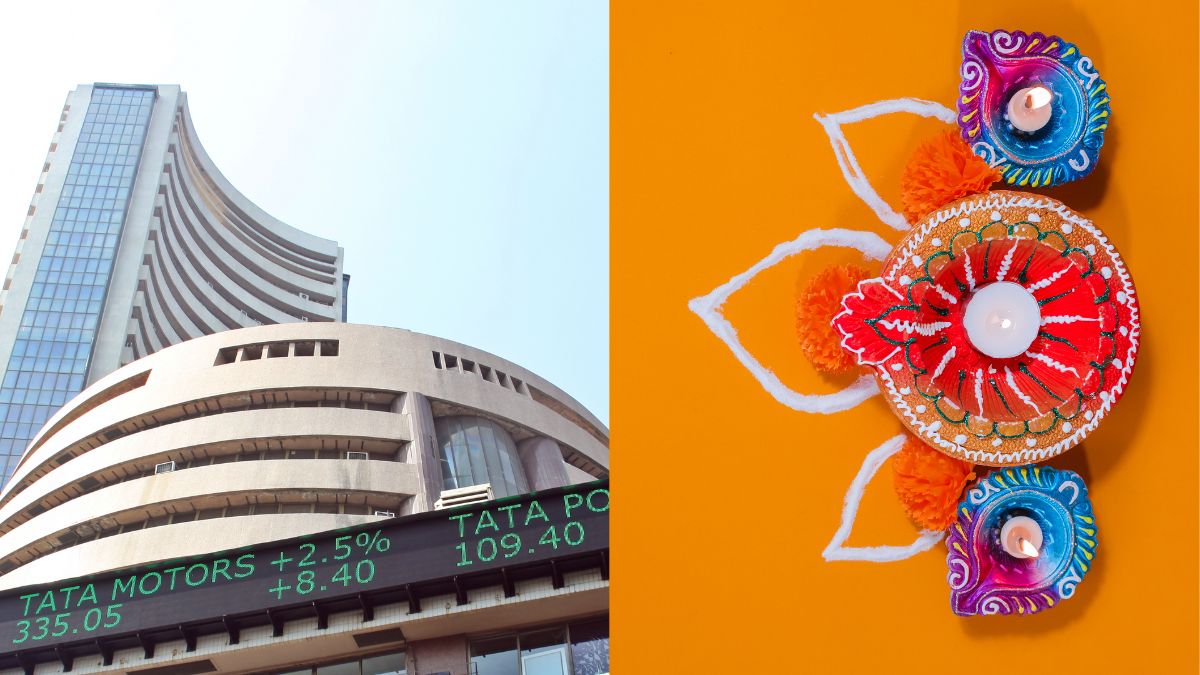Samvat 2080 may have ended on a disappointing note, but investors ushered in Samvat 2081 with renewed hope and optimism. During the special Diwali Muhurat trading held on Friday evening, on the occasion of Lakshmi Pujan, the BSE Sensex closed 335 points or 0.4 per cent higher at 79,724.12 level and the NSE Nifty 50 index gained 99 points or 0.4 per cent to end the session at 24,304.35 level.
In what had been one of the best years in the past three years, Samvat 2080 had seen the benchmark Sensex and Nifty gain 21 per cent and 24 per cent respectively. The mid and small caps had outperformed large caps, surging 40 per cent. However, huge selling by foreign institutional investors through October, saw the Sensex and Nifty pull back around 8 per cent from their life high.
During the Muhurat trading session on Friday, 27 stocks out of the 30-share Sensex ended in the green. Auto stocks led the gains, with Mahindra and Mahindra rising 3.3 per cent, Tata Motors rose 1.1 per cent and Maruti Suzuki ended 0.3 per cent higher. Other major gainers included Adani Ports, Axis Bank, Nestle India, Kotak Mahindra Bank, NTPC, Titan and Tata Steel, which gained between 0.7 per cent to 1.2 per cent.
ICICI Bank, Tech Mahindra and HCL Technologies were the only losers on the Sensex.
In the broader markets, the BSE Midcap index was up 0.7 per cent and the Small Cap index rose 1.2 per cent.
ALSO READ | India's Reserve Bank brings back 102 metric tonnes of gold ahead of Diwali
While markets rallied over the past year, there are several headwinds ahead in the form of escalating geopolitical tensions, slowing consumption growth, especially in urban markets, and corporate earnings growth has also moderated. Volatile food inflation continues to remain a concern too, something the Reserve Bank of India will be closely watching out for when the monetary policy committee meets next in December.
According to Trendlyne data, foreign institutional investors sold Rs 1.14 lakh crore in the stock market in the past 30 days, partially offset by domestic investors pumping in Rs 1.07 lakh crore.
"Given India's elevated valuations and concerns over deceleration in earnings growth, FII selling might continue, impacting the benchmark indices," noted V.K. Vijayakumar, chief investment strategist at Geojit Financial Services.
Investors should focus on stock-specific investments where the second quarter earnings have been good and the earnings visibility is bright, he said.
Broking firm Angel One has a positive outlook on sectors such as capital goods, construction, consumer durables, finance, FMCG, gas distribution, information technology, pharma, plastics, power and refractories, all of which are positioned to benefit from India's economic growth trajectory.
It expects near-term volatility, though, stemming from tensions in West Asia and Ukraine, crude oil prices, major state elections in the country and the upcoming US elections.
Amar Ambani, executive director at Yes Securities said the recent correction in the Indian stock market was a "healthy and much needed one," adding that 10-20 per cent corrections were not uncommon to bull markets.
"There is no bubble in banking, housing or the corporate sector and rural India is also showing signs of a pick-up. We therefore believe that India is in a long-term structural bull market, marked by manageable corrections along the way," he said.
In recent times, a lot of foreign money has moved to China, in the wake of various stimulus measures announced there to lift the economy. However, Ambani believes that China faces "deep structural challenges" that monetary and likely fiscal stimulus may not be able to resolve. He, therefore, believes the current China trade is a "tactical one" and FIIs will return to Indian equity markets given its stronger macroeconomic profile. At the same time, domestic liquidity continues to remain a positive driver for Indian markets, he added.



